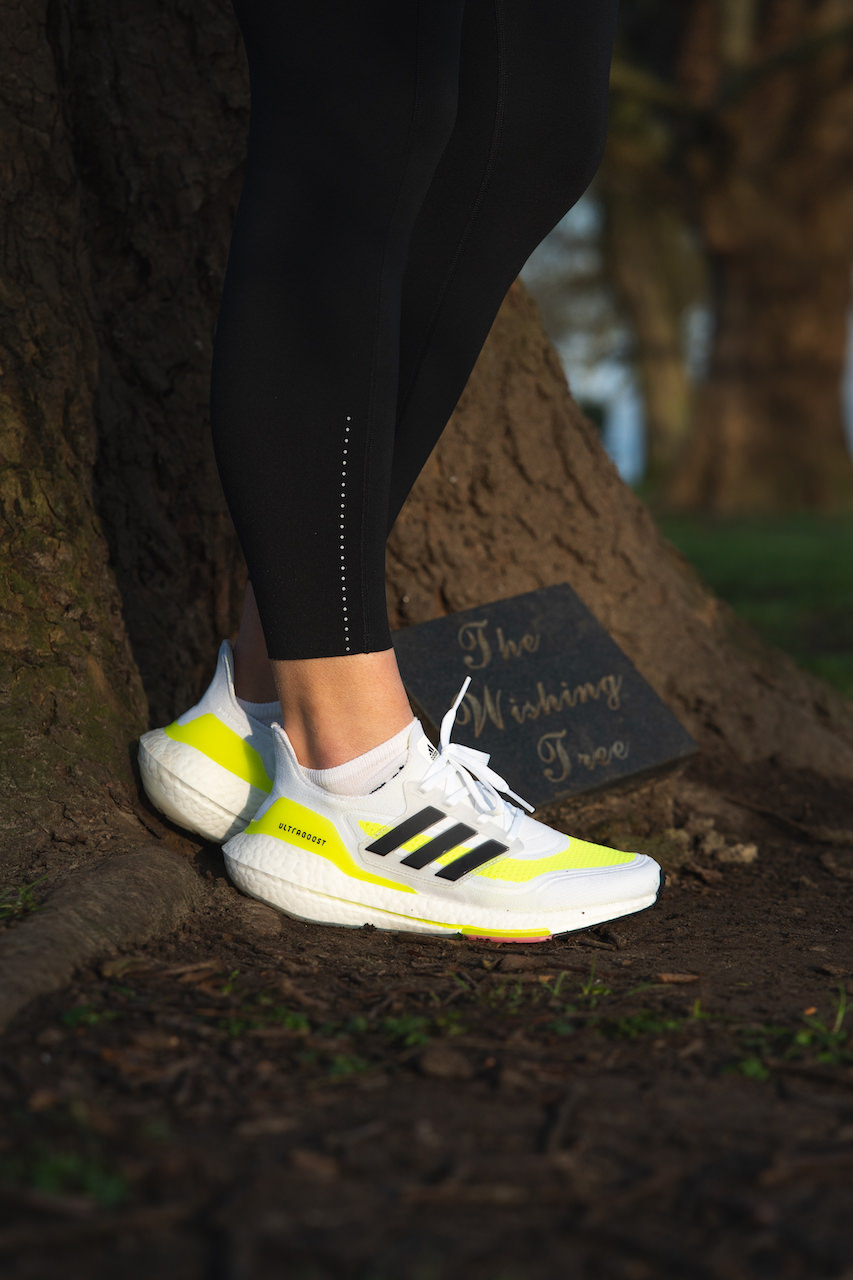I’ve written before about how beneficial I think hiring a running coach can be. It’s an extra expense but if you can afford it, it’s definitely worth thinking about, especially if you’ve set yourself big running goals.
Running is such a personal thing and the best way to approach it will depend on so many things; your goals, previous experience, current ability and your lifestyle. Having a coach tailor your training exactly to you may lead to better results than just following an off-the-shelf plan.
There’s also so much value to simply know that someone’s in your corner, really supporting you. Plus you’re literally paying someone to hear you talk about your running, which may save boring your non-runner friends and family about it all the time!
-> Is it worth Hiring a Running Coach? <-
How To Find The Right Running Coach For You
If you’ve decided you want to invest in a running coach, then there are a few things you’re going to want to think about when choosing one. The relationship between coach and runner relies on a lot of trust and communication, so you need to make sure whoever you choose is on the same page as you.
Online vs. in-person coaching
One of the first things you’ll want to think about is whether you’re happy with a virtual relationship with your coach, or if you’d prefer somebody you could see in real life (following Covid guidelines).
In-person run coaches could guide you through tough sessions on the track, or perhaps watch you run to help with your form. Some will be qualified personal trainers too, so you might see them in the gym for strength and conditioning like any PT but then they’re set your run training outside of that too.
Having to show up in real life may keep you more accountable, and many people find seeing their coach in-person helps them to build a closer relationship. The down side is that you are a lot more limited by geography in terms of who you can work with, not to mention cost (we’ll get to this later). Whilst location might not be an issue if you live somewhere with lots of run coaches, like a big city, but may be tricky if you’re somewhere more remote.
Right now, online coaching is probably easiest to ensure Covid guidelines are followed. It also increases the number of coaches available to you, meaning you’re more likely to find that perfect fit. From elite runners and ex-Olympians to qualified coaches and enthusiasts, there is a much wider choice when you take your coaching online.
I’ve had a great experience using coaches based in the US and UK, and with phone check ins, text messages, video calls, voice notes etc a good coach will still be able to get to know you.
->PROS/CONS OF WORKING WITH AN ONLINE RUNNING COACH <-
Ask for recommendations
There are lots of running coaches out there and just like with anything, some are going to be better than others!
Just because somebody has completed a course and got the piece of paper doesn’t necessarily make them a great coach (although this is still important, more on qualifications below!).
Word of mouth is a great way to find an amazing coach (and who to avoid!). Maybe you have a running friend who is suddenly ticking off a new PB every race. Or maybe somebody who’s usually really injury-prone has suddenly been running consistently for months on end. If they have a coach, ask who they are and what they think. You want a coach who shares your values and the ones that come recommended from friends are likely to.
If none of your friends run, then Instagram is a great place to seek out inspiration too. See who your favourite IG runners are working with, especially those with similar goals to yours, most will be more than happy to share their recommendations. Or maybe you follow a running coach who is already sharing invaluable information…why not slide into their DMs to chat. Your local running club is a great resource too – you’ll find people who are super passionate, with years and years of experience.
Check out their qualifications
Don’t be afraid to ask a coach about their qualifications before you start working with them. You’re going to be putting a lot of trust in this person and it’s important that they know what they’re talking about.
Common coaching qualifications include the England Athletics Leadership in Running Fitness, Coach in Running Fitness, or the Road Runner’s Club of America course. Lots of coaches are also qualified PTs, something you’ll especially want to pay attention to if they’re setting your strength and conditioning work too.
Good coaches will take pride in knowing their stuff and keeping this knowledge up to date. They won’t be offended when you ask and will likely be really passionate about sharing what they know!
Think about your budget
There are a few different ways you can work with a coach, some of which cost more than others. This generally depends on the amount of time the coach is going to put in…
On the lighter end of the budget, you get custom training plans. The coach will ask you questions about your running history, goals, lifestyle, etc and then draw you up a plan for a certain period of time. This will be a one-off consultation period and then it’s up to you to follow the plan yourself. Occasionally the price will include a half-way revision if necessary.
Beyond this, coaches will offer various packages for weekly or fortnightly training plans, offering varying levels of adjustment, check-ins, race day coaching calls etc. Some offer strength training and cross-training plans, access to sports dietitians, group chats etc on top of your regular running plan.
The prices for coaches vary hugely depending on experience. I’d be wary of anybody offering their services too cheaply. It can be a case of you get what you pay for and given that this is your body and health, you want to make sure you’re in good hands.
Equally, don’t pay just for a big name. Just because somebody is an insta-celebrity or group doesn’t necessarily make them a great coach for you.
What’s their personal running experience
I wasn’t sure whether to include this one because, actually, it’s not something you want to focus on too much. Somebody can be a fantastic coach without necessarily being the best runner (luckily for Olympians trying to break World Records!), and likewise just because you can run a sub-3 hour marathon doesn’t mean you’re automatically a good coach.
However, there are some cases where personal experience can be really useful. For instance, if you’re training for a multi-day ultra, having someone on hand who has been through something similar and can really guide you on things like kit choices, nutrition, pacing etc, could be really valuable. Similarly, if your coach has done your goal race, then they can offer extra specific advice to get you to that finish line!
Don’t get sidetracked by someone’s personal running experience above their qualifications and coaching experience, but it’s definitely a useful bonus.
Personally, I find someone who understands what’s going on in your life, (work, childcare, health) and maybe someone who is or has balanced something similar, is really helpful. They’re more likely to create flexible plans that fit within your life, and be able to help you set out the key workouts/runs, and what can be skipped if needed. You don’t want your coach to add more stress to your life!
Chat with them
It’s worth having a call or two with a potential coach to get a feel for their personality, style and thoughts on training especially in relation to your goals before signing up. Personally I think if anyone is too pushy, step away. You should feel comfortable sharing your realities of life, ups and downs of training, any worries or concerns with them so that they can plan your training accordingly.
Different coaches have different styles.
Some will tend towards higher mileage, some will be keen on regular racing others will not. Whilst the coach will (or should!) tailor their training plan to the individual, the overall style and coaching philosophies will translate across varying levels of runner.
You may also think about whether joining a coaching team, eg Relentless Runners (with multiple coaches and athletes) or an individual coach would suit you best. My experience has been that coaching teams are often pricier than individuals but you may get more for your money eg group calls, nutrition, strength training options.
It might be worth signing up for a rolling monthly partnership at the start to test the waters with a new coach. However, it’s important to give the relationship and training time to develop. Within 3-6 months you should know whether the training is working, and whether its a good fit! If you feel like it’s not, don’t be too afraid to leave or to voice your concerns. Maybe there isn’t as much contact/feedback as you’d like, you feel that your concerns are not being addressed, or if you’re doing all the work and not seeing progress…then maybe it’s time to find someone else. Alternatively if you are struggling financially or just need to take a break from running/coaching then a good coach will be accepting of this (in my opinion, but it has not always been my experience!)
Have you worked with a running coach before? How did you find them?



0 Comments